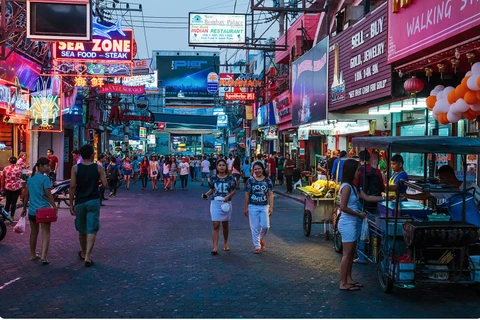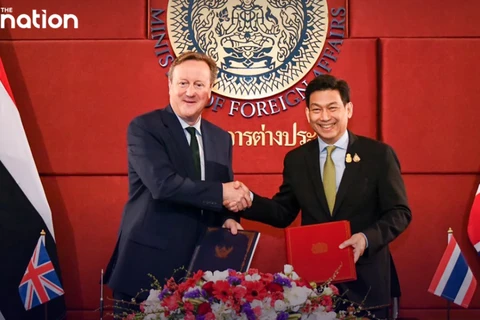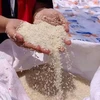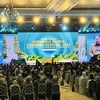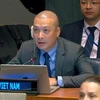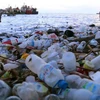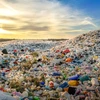Bangkok (VNA) - Thai marine biologists are making efforts to save the country’s reefs from degradation driven by warming oceans and human activity like tourism.
As reported by Reuters, four of them dived through shallow waters off an island in the country's south as billions of pink specks floated up from the ocean floor in a spectacle that takes place only once a year. The pink specks were sperm and eggs released by coral. The scientists collected as many samples as possible for breeding.
Their research is painstaking because the coral only spawn once a year, and it can take up to five years to raise the juveniles in a lab before they are ready to be transferred back onto the seabed, said the news agency.
The coral breeding and restoration project was started by Thailand's Department of Marine and Coastal Resources in 2016 in the southern island of Man Nai, which houses over 98 species of coral.
The project came after as much as 90% of Thailand's coral reefs were affected by a mass bleaching event that started in 2010, most likely triggered by rising water temperatures.
Since the project was initiated, more than 4,000 coral colonies around Mun Nai island have been restored, the department said./.
As reported by Reuters, four of them dived through shallow waters off an island in the country's south as billions of pink specks floated up from the ocean floor in a spectacle that takes place only once a year. The pink specks were sperm and eggs released by coral. The scientists collected as many samples as possible for breeding.
Their research is painstaking because the coral only spawn once a year, and it can take up to five years to raise the juveniles in a lab before they are ready to be transferred back onto the seabed, said the news agency.
The coral breeding and restoration project was started by Thailand's Department of Marine and Coastal Resources in 2016 in the southern island of Man Nai, which houses over 98 species of coral.
The project came after as much as 90% of Thailand's coral reefs were affected by a mass bleaching event that started in 2010, most likely triggered by rising water temperatures.
Since the project was initiated, more than 4,000 coral colonies around Mun Nai island have been restored, the department said./.
VNA
